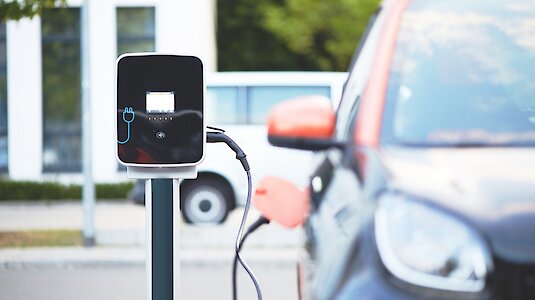Car sharing as part of the mobility transformation
Mobility behaviour has changed significantly compared to previous years - not least due to the views and needs of young people.
For many young people, the car is no longer seen as a prestige object, but as an effective and efficient means of transport within the framework of a "modal split", i.e. intelligent sustainable mobility adapted to their needs using the most effective means of transport.
A resource-saving greenhouse gas neutrality and thus the achievement of the climate goals can only be achieved through a simultaneous mobility turnaround.
"Car sharing", especially using e-vehicles, not only contributes to relaxed and carefree travel, but also represents a significant contribution to sustainable mobility. The advantages are obvious: if cars are used by several people, this affects the energy used in car production, the material side of the resources used, the economy of the inherent working hours and the costs incurred by private car ownership. In relation to the person or the kilometres driven, "car sharing" increases productivity or resource efficiency in all these areas. "Car sharing" can therefore optimise land use, reduce greenhouse gases, improve air quality and reduce unpleasant odours, smog and noise.
The environment, climate and health therefore only win if these efficiency gains are not offset by exuberant growth in car kilometres. Regulatory and market-based instruments are therefore needed.
In a recent press release, the VCÖ also advocates the expansion of car sharing services. This is not only an important pillar of the circular economy ("Circular Mobility"), but also an important contribution to achieving the climate goals. The targeted promotion of "car sharing" would also open up the possibility of adapting the size of the vehicle to the respective purpose of the trip, as this also has a very significant influence on the environmental balance.
In the study (Herry Consult, 2015), the benefits for the city's greenhouse gas balance are clear: car sharing saves 44 million car kilometres per year in Vienna, which corresponds to an annual saving of about 7,000 tonnes of CO2. (Figures for 2015).
This applies not only to location-based car sharing services (such as "Stadtauto"), but also to the so-called free-floating fleets (such as "Car2Go"), which can be parked at any location within the business area. As the study shows, one carsharing car replaces five private cars.
Carsharing with an Ecolabel
The Ministry of Climate Protection has developed a new eco-label guideline for "car sharing" within the framework of the Ecolabel, i.e. a voluntary award for premium products and services that has been developed over many years and has been very successful.
The intention of the new guideline for "car sharing" is to make car sharing offers with ecological commitment clearly distinguishable from those that lack such. This should enable effective marketing and clear orientation for conscious purchasing as well as for climate and environmental policy objectives.
The Ecolabel "Car-Sharing" has the following characteristics:
- It promotes multimodal mobility behaviour (public transport, walking, cycling, etc.) from a minimum size of the offer.
- A minimum resource efficiency or a minimum capacity utilisation is observed.
- The legal standards for new registrations for diesel and petrol engines are considerably exceeded (the criteria for diesel exhaust emissions are currently hardly or not at all realisable!)
- A minimum share of smaller vehicles in the entire vehicle fleet
- Older vehicles will be replaced by environmentally friendly top models or drive systems within 4 years.
- Electromobility is promoted through a minimum share of purely electric vehicles.
- Electricity from supplier-owned charging stations comes from 100% renewable energy sources
- High standards of quality of use are maintained
Ecolabel licensee
„Porsche Bank AG“ is the first "car sharing" provider to be awarded the Ecolabel. "Sharetoo" is an innovative e-car sharing concept of Porsche Bank. The aim is to combine sustainable mobility with state-of-the-art technology. With around 200 vehicles in around 30 cities and municipalities, sharetoo "Carsharing" is one of the largest e-car sharing providers in Austria.
The Climate Protection Ministry is already in negotiations with other large "carsharing" companies to further expand the successful concept.
